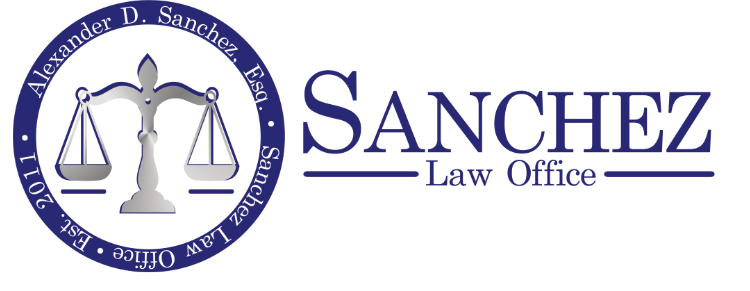Married to U.S. Citizen, but here Illegally: Path to Legal Status?
Son or Daughter of U.S. Citizen, but here Illegally: Path to Legal Status?
[Provisional Unlawful Presence Waiver; INA §209(a)(9)(B)(v); Form i-601A]
Author: Alexander D. Sanchez, Esq.
Date: August, 28 2016
SHARE THS POST

CASE: Samantha has been illegally present in the U.S. for about 11 years. She entered without inspection a few years after marrying her husband (a U.S. Citizen). They have 3 kids together, all U.S. Citizens, and she has never left. She has heard that those that remain in the U.S. illegally for more than 1 year are barred from admission for 10 years, but she wonders if there is an exception for her that applies.
Those who have been illegally present in the U.S. for 6 months or longer are generally barred from legal admission to the U.S. for a period of 3 or 10 years. There is also a permanent bar (which can still be waived after 10 years) for who have cumulatively been illegally present in the U.S. for more than 1 year and have entered without inspection (illegally) more than once or have previously been ordered deported.
For instances where a person is either married to a U.S. Citizen (“USC”) or is the son or daughter of a USC and is inadmissible under the 3/10 bar (but not the permanent bar) there is a path to legal status that waives the 3/10 bar. It is called a Provisional Unlawful Presence Waiver.
Who Qualifies for a Provisional Unlawful Presence Waiver?
How do I show extreme hardship to USC spouse/parent?
What if my spouse or parent is a Lawful Permanent Resident (“LPR”)
Who Qualifies for a Provisional Unlawful Presence Waiver?
1. You must be present in the U.S. at time of filing for the waiver and complete the biometric collection requirement here in the U.S.
2. You must be 17 years or older at time of filing for waiver
3. You must be a spouse or son/daughter of a USC and the beneficiary of an approved I-130 or I-360 petition
4. You must have a pending immigrant visa case classifying you as an immediate relative with the Department of State (DOS)
5. Once your waiver is approved you must depart the U.S. to attend your immigrant visa interview in your home country
6. You must prove that denial of waiver would result in extreme hardship to the USC spouse or USC parent and that the waiver warrants a favorable exercise of discretion
How do I show extreme hardship to USC spouse/parent?
The factors that will be considered in determining extreme hardship include, but are not limited to:
1. USC family ties to this country
2. Qualifying relative’s family ties outside the United States
3. The conditions in the country to which the qualifying relative would relocate and the extent of the qualifying relative’s ties to such countries
4. The financial impact of departure from this country
5. Significant conditions of health, particularly when tied to the unavailability of suitable medical care in the country to which the qualifying relative would relocate
The Standard Operating Procedures (“SOPs”) that immigration officers use to assess extreme hardship consider the following guiding principles:
1. Must be greater than common results of hardship
2. Does not need to be unique or unusual hardship
3. Must be based on the factors, arguments and evidence submitted
4. Assessments are made individually and collectively
5. Can be based on actual or prospective injury (but prospective injury must be realistic/foreseeable)
Instruction for Form I-601A (quoted verbatim below) include the following categories and examples of extreme hardship:
1. Health. Examples include: Ongoing or specialized treatment required for a physical or mental condition, availability or quality of such treatment in the foreign country, anticipated treatment duration, whether the condition is long term, and whether it is chronic or acute.
2. Financial considerations. Examples include: Future employability, loss due to sale of home or business or termination of a professional practice, a decline in standard of living, ability to recoup short-term losses, cost of extraordinary needs (such as special education or training for children with special needs), or the cost of care for family members such as elderly or sick parents.
3. Education. Examples include: Loss of opportunity for higher education, lower quality or limited scope of education options, disruption of a current program, requirement to receive education in a foreign language or culture with ensuing loss of time or grade, and availability of special requirements, such as training programs or internships in specific fields.
4. Personal considerations. Examples include: Close relatives in the United States and country of birth or citizenship, separation from spouse or children, ages of involved parties, and length of residence and community ties in the United States.
5. Special factors. Examples include: Cultural, language-related, religious, and ethnic obstacles; valid fears of persecution, physical harm, or injury; social ostracism or stigma; and lack of access to social institutions or structures (official or unofficial) that provide support, guidance, or protection.
What if my spouse or parent is a Lawful Permanent Resident (“LPR”)
Currently the Provisional Unlawful Presence Waiver is only available where the applicant is married to a USC or the son/daughter of a USC. DHS has proposed expanding the program to LPR spouses/parents, but that proposal has not taken effect. See 80 FR 43338-54 (July 22, 2015).

